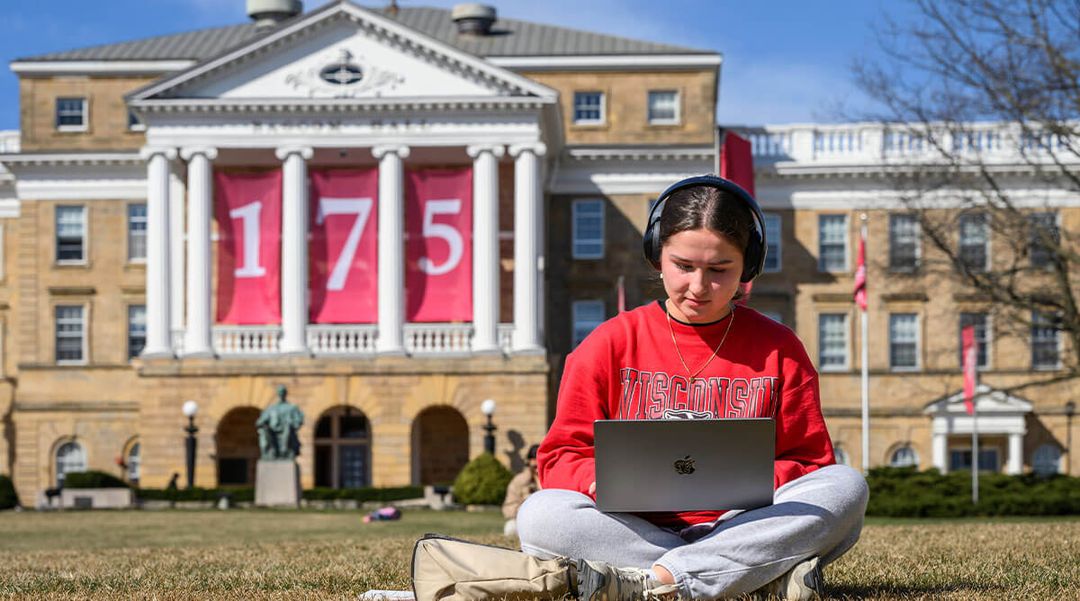It sounds pretty straightforward: having lots of money will make you happy, and having lots of debt will make you unhappy, right?
Early findings from a longitudinal study about the impact of financial decisions on personal well-being suggest it may not be so simple. Launched in 2007, the Arizona Pathways to Life Success for University Students is tracking about 1,000 participants who are currently 24 years old. A take-away from the project so far is that when it comes to having a sense of fulfillment, the amount of money young adults have in their bank accounts is less important than whether they perceive that money as being sufficient to enable independent, meaningful lives.

It’s a message Soyeon Shim thinks needs to be better communicated to college-aged students at home and in the classroom. Formerly a professor at the University of Arizona and now dean of the UW’s School of Human Ecology, Shim is the principal investigator on Pathways — a project inspired by a challenge she saw on campus and in her own family.
Shim’s 20-year study to track financial attitudes and behaviors is cited regularly by federal agencies, and the project is already challenging popular preconceptions about the link between financial behaviors and personal fulfillment.
Before 2007, Shim’s research had focused on consumer behaviors and goods, but she noticed a rapid increase in the number of credit card companies visiting campus. Then, she began hearing more stories about students feeling saddled with large amounts of credit-card and student-loan debt. Shim became deeply invested in the question of why some college students fared better than others in terms of becoming financially self-sufficient after graduation.
“No one was studying the impact of this kind of thing on students’ future success,” she says. “How do we know the process by which young people acquire financial knowledge and behavior?�”
The question became especially pressing for Shim as her daughter entered her senior year of high school. Shim and her husband were increasingly preoccupied with figuring out ways to help guide her toward responsible decision-making, and Shim realized that her professional and personal interests had come to a crossroads.
“It became important to me because no one was addressing this societal issue,” she says. “I wanted to do something about it.”
That something became the first study of its kind to track not only young adults’ financial decisions, but also the psychological impact of those decisions. What does debt do to the psyche of young adults? How do certain attitudes about money translate into students’ success after graduation?
Shim is among dozens of UW faculty members showcasing this kind of insight and inquiry — a tradition in the UW’s academic excellence past, present and future — across the country this spring as they visit Wisconsin Alumni Association (WAA) chapters at events marking Founders’ Day, WAA’s celebration of the anniversary of the first day of university classes on February 5, 1849.
Debt deception
The Pathways team launched its first wave of data collection in 2007. Then the financial crisis hit. Though the researchers had prepared to account for major life events, they hadn’t anticipated seeing a recession occur so early. Predictably, they found that students who reported a large impact from the economic downturn on their families’ finances also reported a large increase in credit-card debt and a decreased ability to save money. They also reported large declines in psychological and physical well-being.
"... if it's strategic debt, it's not the debt that's the bad guy."
Six years later, the relationship between debt and well-being has changed for Pathways participants. Most of them have graduated from college, and among the half who are employed full time, there isn’t much difference in terms of happiness between those with debt and those who are debt free. However, those who are debt free but unemployed are significantly less happy than those who have debt but also have a full-time job.
“We thought if you had a lot of debt, you would be unhappy,” Shim says. “But if it’s strategic debt, it’s not the debt that’s the bad guy.”
Strikingly, only 300 study participants say they are entirely financially self-sufficient. Almost half of those who are employed full time are still receiving at least some support from their parents or other relatives to meet their financial obligations.
The early Pathways findings meant that Shim’s professional and personal worlds were once again coming together, but this time, her daughter wasn’t going to like it.
The Shims had always planned to put their children through college themselves. However, Shim convinced her husband to read the Pathways reports, and after much cajoling, he got on board with her plan to make their daughter more accountable for her education. The younger Shim was initially resistant to taking out a loan and developing a plan to pay it back, but the result — according to her mother — is that she has become more mindful about her finances and is making more strategic career choices.
“I couldn’t buy that for her,” Shim says. “I’m so happy we did it. It’s been a life lesson for her.”
Though Shim says the accountability approach worked for her daughter, she recognizes that one strategy doesn’t fit all college students. In fact, the Shims have adopted a different “financial parenting” method for their son, who is now a junior in college. To develop broader recommendations, Shim is working on a list of “financial identities” that describe different personality types, as well as suggestions for financial parenting strategies targeted toward those individual identities.
“[Pathways is] changing the conversation about financial parenting and education from facts to the why. And I’m excited about that part.”
The Pathways team has essentially found that those who view money as a mechanism for self-fulfillment rather than the end goal are happier. While the result sounds basic, Shim believes it’s a difficult concept to convey to young adults, and she’s working on ways to better educate them about the holistic benefits of financial planning.
“The message we’re telling the kids is [money management] is for the future,” Shim says. “It has to be more about experience, not just facts. It has to be relevant to them and has to be about now, not just about the future. It’s not just about money, but it’s about life.










